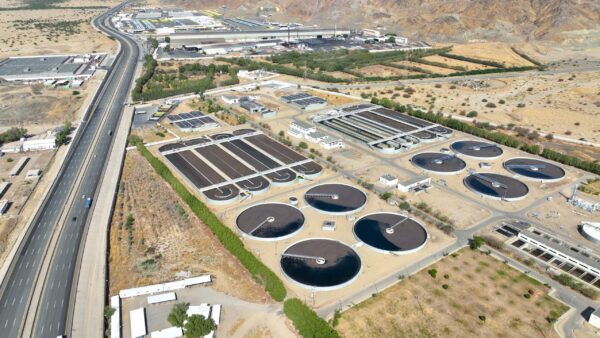
August 27, 2025 | Articles

In the 5th Edition of the Project Management Institute’s (PMI) Project Management Book of Knowledge, a Project (or Program) Information Management System is defined as “an information system consisting of the tools and techniques used to gather, integrate, and disseminate the outputs of project management processes. It is used to support all aspects of the project from initiating through closing and can include both manual and automated systems.” Typical PMIS functions and characteristics for a construction program or project include:
At Hill International, we define the PMIS as a key tool to success on any complex program or project. PMIS design and implementation varies in terms of scope, features, and function, but all PMIS software tools share the main characteristics listed above. Each of these functions is integrated with one another, meaning a PMIS must deliver accurate and timely information to several audiences concurrently, and do with the right levels of granularity, technicality, and security. Sometimes, a single, off-the-shelf PMIS solution can deliver this functionality to the level the project demands. However, in most cases, there is no “silver bullet” solution. The reality is many one-size-fits-all tools excel in one area but fall short in others.
On assignments where our clients request our help in building a project-specific PMIS solution, Hill utilizes a “best of breed” approach to achieve the above outcomes. This hybrid approach draws upon the best features and functionality of the leading industry tools to deliver a custom approach to PMIS that is unlike anything else in the industry.
We do this by leveraging the power of multiple commercial grade tools to provide a fully integrated management system to oversee all cost, schedule, risk, and essential data reporting. In addition, our approach also helps avoid common PMIS-specific risks, such as wrongly configured software, tools that do not produce a high ROI, and packages difficult to launch, learn, and use.
The PMIS tools and software we can deploy and integrate include, but are not limited to, e-Builder, Kahua, Procore, Smartsheet, Autodesk Build and 360, PM Web, Oracle P-6, Deltek Acumen Suite (Fuse, 360 and Risk), Oracle Primavera Risk Analysis, Ron Winter Schedule Analyzer Enterprise, Microsoft Project, ASTA PowerProject, TILOS (for horizontal construction projects), Phoenix Project Manager, Sage (Timberline) Estimating, US RIB Cost Success Estimator, On Center On Screen Takeoff, Trak Ware Earthworks, AccuBid, Equipment Watch, Microsoft SharePoint, Bluebeam, Plan Grid, configuration management tools, and sensitivity analysis software for the design and coordination of all types of programs and projects.
When developing a PMIS, we evaluate all existing PMIS tools the client may use and assess and establish a baseline and compare it to project, organization, and user needs and specifications. We listen to your needs then guide the selection process to find the right tools for the job, learning and codifying your specific project needs and objectives.
Factors we consider include:
Cost: PMIS tools are inherently expensive and choosing the wrong one can hamper your ability to manage or program effectively. We work within your budget to achieve a PMIS solution that fits your needs and your cost constraints.
Preferences: Client preferences and aversions to a particular tool can cloud the main objective of a PMIS – Does it provide comprehensive command and control over your data? We work with your end-users to make certain the solution you choose is the right solution for your culture.
Usability: Clients need something that’s easy to adopt and simple to use. Our trainers and controls professionals ensure your teams are comfortable with the PMIS solution and will maximize its use.
Below is a partial list Hill PMIS comparison Matrix performed for a multi-site, multi-project capital program for an infrastructure client showing how we align functionality with PMIS packages:
This table demonstrates the versatility and robustness of our best-of-breed approach, which delivers benefits to you including:
Cloud Power: Hill’s best of breed solutions take full advantage of cloud computing. There are many advantages of using a cloud based PMIS as compared to a downloaded tool. A cloud based PMIS solution, for example, increases accuracy, currency, scalability, collaboration, and the ability to manage concurrent work across multiple sites. For example, on site data collected in a PMIS cloud solution can be exported to reports for stakeholders and team members almost instantly, while a “hard” PMIS solution would require downloads and uploads at prescribed intervals—costing time that could be spent moving the project forward.
Scalability: Another advantage of the best of breed approach is in its scalability. While stand-alone PMIS vendors offer turnkey solutions with supposed infinite scalability, in fact functionality is largely baked into these tools and scaling the solution up to accommodate a project gate change, incorporate lessons learned, or distribute additional KPI monitoring reports requires a significant time investment and additional development costs. Conversely, Hill’s solutions can build-in scalability from launch, reducing long-term costs and one-size-fits-all workflows.
Custom Visuals and Reports: What truly sets Hill’s PMIS support apart is our ability to transform individual data, converting traditional estimating, cost, schedule, and risk items into viable meta-data that can be used to track and trend issues, regardless of the PMIS solutions chosen. This ability provides real-time, intelligent, actionable data that can be used to drive decisions and help to ensure successful project completion by:
For organizations embarking on construction projects and programs, PMIS selection can be confusing. in-house or off-the-shelf systems may provide the levels of functionality and accuracy you require, but in many cases unique projects require unique information solutions. Hill’s best-of-breed approach offers clients the ability to realize powerful, scalable, flexible, and tailored PMIS solutions to keep control of their projects and maximize the ROI of their solution.

Randy Richardson PMP, is the Vice President of Program Management at Hill International, Inc. He has more than 38 years of experience delivering global projects and major programs across a wide range of market sectors. Prior to joining Hill, he was managing ten senior program managers in the U.S., Panama, and Korea with a combined portfolio valuing more than $20 billion. To speak with Randy about how Hill’s best of breed approach can benefit your program, reach out at [email protected].
Share

August 27, 2025 | Articles

August 12, 2025 | Articles
Hill Welcomes Ben Schwenk as Senior Vice President in the Kingdom of Saudi Arabia

July 27, 2025 | Articles
The Infrastructure Puzzle: Robert Regalado’s Wholistic Business Development Approach

July 13, 2025 | Articles
Tech-Forward Contracting: A Much-Needed Construction Solution

June 23, 2025 | Articles
Jeffrey Hurley Joins Hill’s Northern California Rail Practice

June 23, 2025 | Articles
Ready, Set, Grow: First VP Chad Koelling Takes Charge of Hill’s Mountain West Region

June 8, 2025 | Articles
PMO in Saudi Arabia: The Holistic Approach to Realizing a National Mega-Portfolio